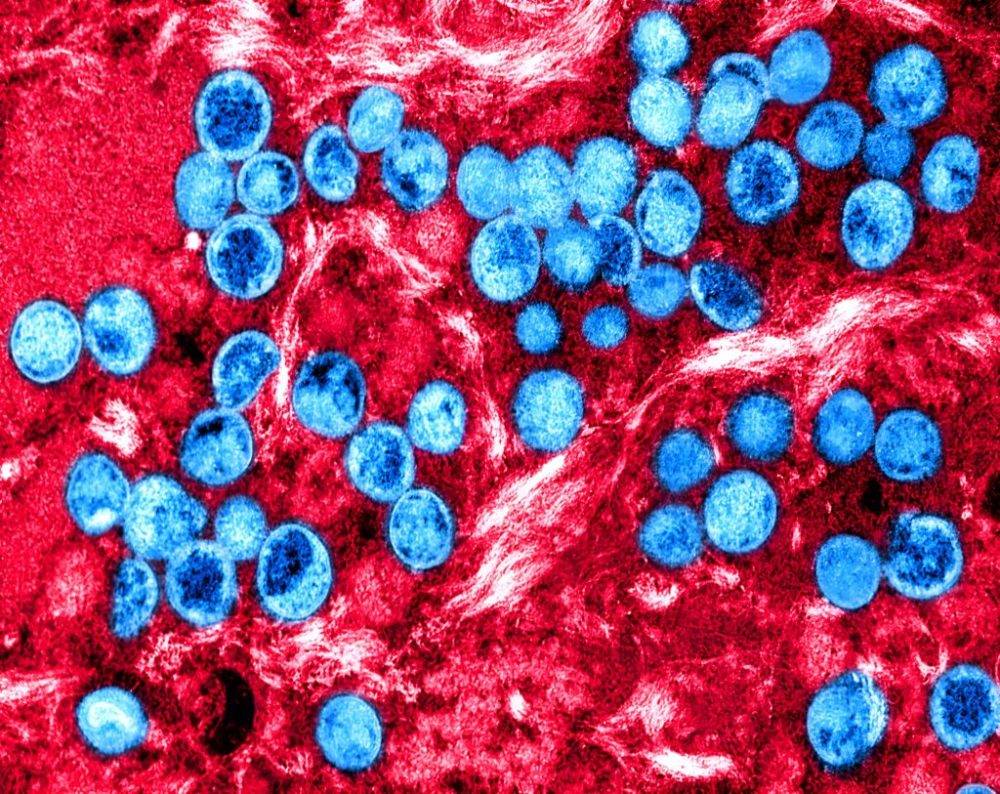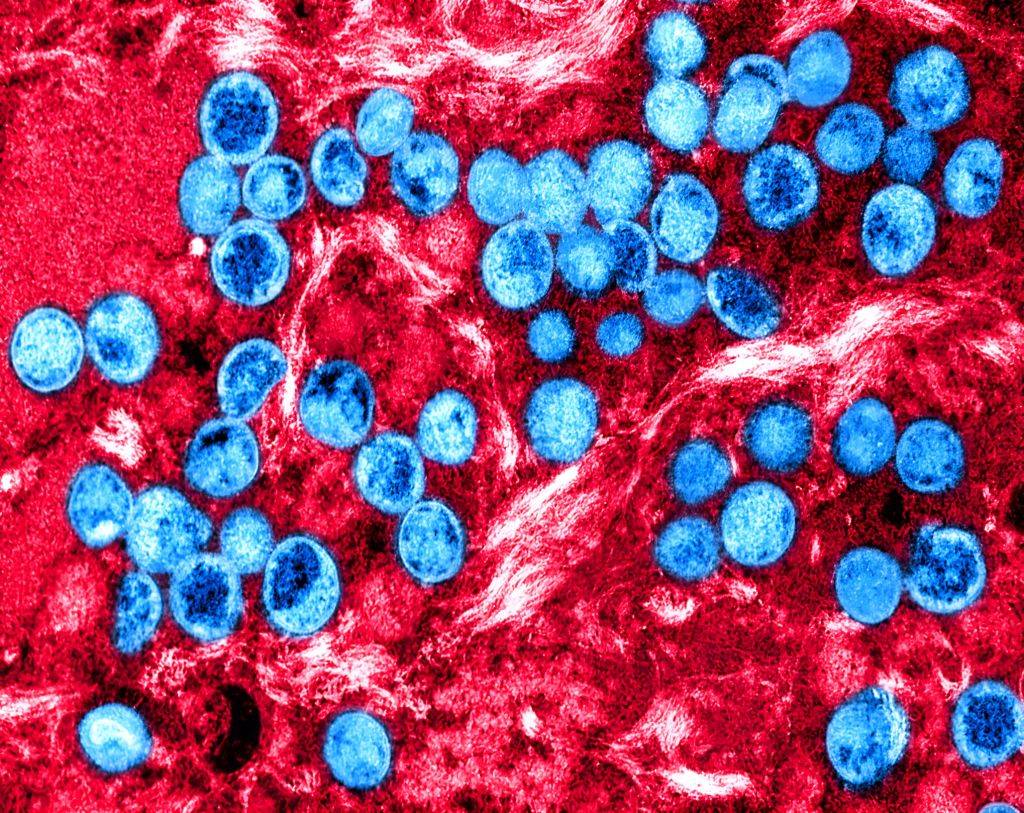
The total number of confirmed positive cases in the country is 24, including three deaths, 19 recoveries and two in home isolation, the ministry said in a statement on Sunday. Twelve cases have been reported in Gauteng, 11 in KwaZulu-Natal and one in the Western Cape. (Photo credit: NIH-NIAID/IMAGE POINT FR/BSIP/Universal Images Group via Getty Images)
TThe Department of Health says the MPOX outbreak in South Africa remains under control but has warned the public to learn from the COVID-19 pandemic and not “let their guard down” as the disease rages across the continent.
The department said in a statement on Sunday that the total number of confirmed positive cases in the country is 24, including three deaths, 19 recoveries and two in home isolation. Twelve cases have been reported in Gauteng, 11 in KwaZulu-Natal and one in the Western Cape.
While there have been no new cases of infection in the country, “that does not mean people should let their guard down, as the COVID-19 pandemic has shown us that viruses are unpredictable as they mutate from time to time,” he said.
“The country remains on high alert in case of a surge in MPOX cases or the emergence of new contagious strains. We urge the public to play their part and support the country's response efforts to prevent the spread of MPOX by maintaining non-pharmaceutical measures, including personal hygiene.”
Last week, the World Health Organization said the surge in MPOX cases in the Democratic Republic of Congo (DRC) and other African countries constitutes a public health emergency of international concern. More than 17,000 cases have been reported across the continent, most of them in the DRC.
Speaking in his capacity as the African Union’s pandemic prevention, preparedness and response champion, President Cyril Ramaphosa said he was deeply concerned about the rapid spread of MPOX in several parts of the continent and the significant increase in the number of cases and deaths, which “reflects a worrying change in epidemiological patterns.”
“Since the beginning of 2024, a total of 17,541 cases (2,822 confirmed and 14,719 suspected cases) and 517 deaths due to MPOX have been reported across 13 AU member states.
“This week, three more countries have notified cases that are under investigation for confirmation, potentially bringing the total to 16. Alarmingly, there has been a 160% surge in the number of cases reported in 2024 compared to the same period in 2023,” President Ramaphosa said.
According to the WHO, monkeypox is a viral disease caused by the monkeypox virus. Common symptoms are a skin rash that lasts up to four weeks, accompanied by fever, headache, muscle and back pain, low energy and swollen lymph nodes.
The Democratic Republic of Congo has the more deadly strain of the virus and has more than 14,000 confirmed cases, followed by Burundi with more than 100. The strain has also spread to East African countries, with four cases in Rwanda, two in Uganda and one in Kenya.
Sweden announced one person had been infected with a more severe variant of the virus that the WHO says is primarily transmitted through sexual contact. The Swedish Ministry of Health said the patient, who is in quarantine, had contracted the virus during a trip to Africa.
Pakistan's Ministry of National Health confirmed the country's first case, which it said came from Saudi Arabia, though health officials said they were still identifying the exact strain of the virus.
South Africa and Côte d'Ivoire are seeing the spread of variants that are believed to be less deadly. Cameroon is the only country where both MPOX variants have been reported to be present.
WHO Director-General Tedros Adhanom Ghebreyesus said the organization was working with countries around the world to accelerate access to vaccines and containment measures to curb the spread of the virus.
The health department said South Africa had managed to secure several batches of Tecovilimat (also known as TPOXX) donated by the WHO, but spokesperson Foster Mohale added last week that “prevention is better than cure, so rather than focusing on treatment, people need to focus on prevention by being vigilant and practising good hygiene habits.”
Following the WHO announcement last week, the Africa Centres for Disease Control and Prevention also warned that current statistics on MPOX on the continent are likely just the tip of the iceberg.

